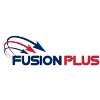11 Parmartha A Hand For You Foundation Jobs
Technical Core Professional
Parmartha A Hand For You Foundation
posted 13d ago
Job Description
Technical Expertise: Utilize your deep understanding and knowledge of specific technical domains to provide innovative solutions and insights. This may include software development, engineering, data analysis, IT infrastructure management, cybersecurity, or other specialized areas.Project Development: Participate in project planning, analysis, and design phases, ensuring technical feasibility and providing valuable input to the project team. Contribute to project documentation, including technical specifications and requirements.Solution Implementation: Collaborate with cross-functional teams to implement technical solutions effectively. This may involve coding, configuring software, setting up hardware, or integrating various systems.Troubleshooting and Support: Diagnose and resolve complex technical issues, either independently or by working closely with other technical experts. Provide timely support to end-users or clients to ensure smooth operations.Research and Development: Stay up-to-date with emerging technologies, industry trends, and best practices. Conduct research and experimentation to improve existing processes or develop new solutions.Testing and Quality Assurance: Conduct thorough testing of developed solutions to ensure their functionality, security, and reliability. Implement quality assurance measures to identify and address potential vulnerabilities.Documentation: Maintain detailed technical documentation, including system configurations, troubleshooting guides, and knowledge base articles. This documentation ensures knowledge sharing and continuity within the organization.Training and Mentoring: Share your technical expertise with team members, junior professionals, or end-users through training sessions and mentorship programs.Security and Compliance: Adhere to security protocols and industry regulations while handling sensitive data or implementing technical solutions. Ensure that the systems and processes you work with meet compliance standards.
Employment Type: Full Time, Permanent
Read full job descriptionSimilar Jobs for you
Share an Interview

























